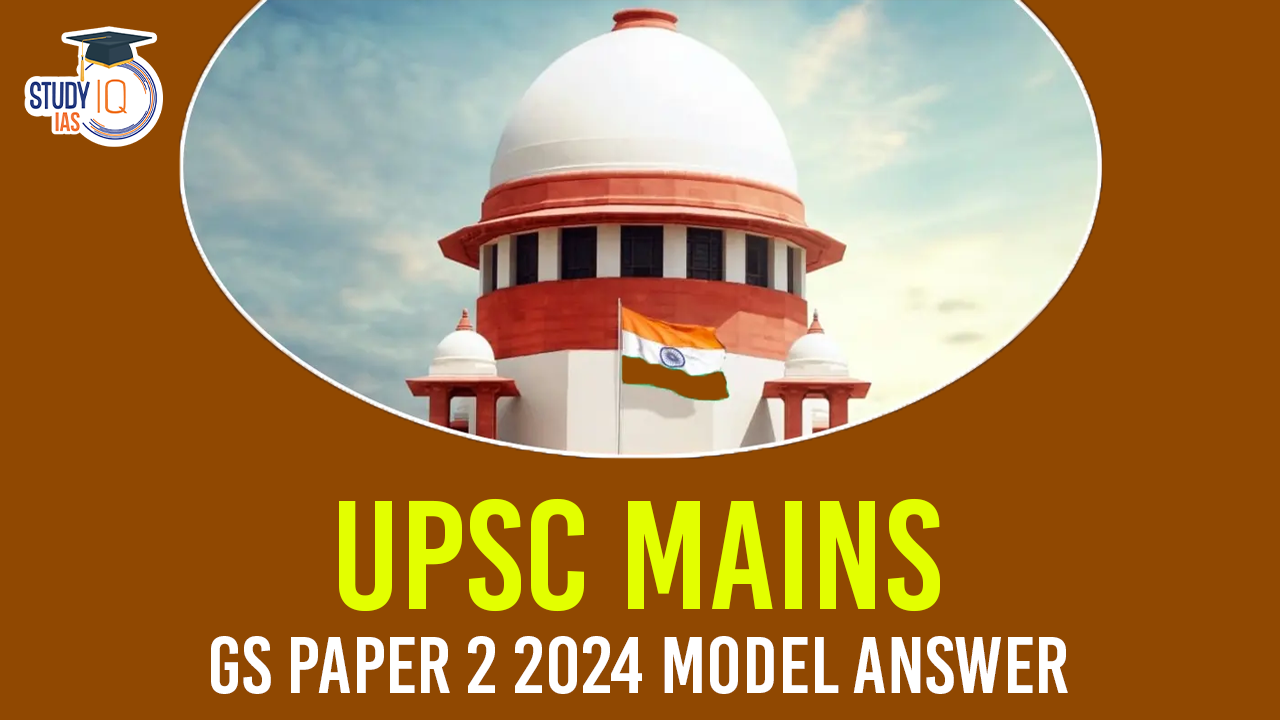Table of Contents
Introduction
The concept of One Nation, One Election proposes simultaneous elections for all state assemblies and the Lok Sabha, to streamline and synchronise the Indian election cycle. Recently, the Prime Minister called for the need of simultaneous elections which was prevalent in India till 1967.
Body
The need for electoral reforms
Suggested by various committees
- Law Commission of India (170th Report): It recommended reforms to ensure free and fair elections, focusing on disqualification of candidates with criminal records, transparency in election financing, and inner-party democracy.
- Justice Venkatachaliah Commission: This commission called for reforms in the appointment of Election Commissioners, decriminalisation of politics, and increased financial transparency in electoral campaigns.
- Goswami Committee: It emphasised the need to address issues of criminalization of politics, electoral malpractices, and poll violence. It also suggested measures to curb excessive expenditure by candidates.
- National Commission to Review the Working of the Constitution (NCRWC): It proposed reforms related to curbing political defection, addressing black money in elections, and suggested state funding for electoral campaigns to limit undue influence.
One-Nation-One Election principle
- Cost effective: Elections are expensive, thus simultaneous elections would result in large financial savings in terms of poll workers, security personnel, and other administrative costs.
- Less election fatigue: Frequent elections can lead to voter fatigue which can be solved by simultaneous elections with a higher voter turnout.
- Time efficiency: Improvement for political parties, individual candidates and the Election commission of India due to increased political stability.
- Model Code of Conduct (MCC): Enforced during election periods, MCC restricts the government from announcing new policies or making significant decisions. Simultaneous elections can provide a continuity in governance.
- Robust governance: Simultaneous elections would provide the elected administration more time to concentrate on important policy matters and long term governance.
Associated challenges with the One-Nation-One Election principle
- Reduced accountability: Voters may not have the opportunity to express their discontent with the government as frequently as they would with staggered elections.
- Dilution of local issues: National issues overpowering local concerns can lead to marginalisation of various sections of the society with their neglected demands for rights on resources.
- Imbalance of power: A national party dominating the Lok Sabha elections could also sweep the state assembly elections, which can result in lack of checks and balances on the powers of the ruling regime.
- Undermining federalism: Simultaneous elections could undermine the federal structure of India by concentration of power at the centre. States may lose their autonomy as well as limited regional representation.
- Less political stability: In the era of coalition governments and coalitions, there can be increased instances of horse trading and disqualifications of MPs/MLAs.
While the idea of simultaneous elections in India has its advantages, it is crucial to analyse its implications thoroughly. It is crucial to strengthen local governance, public engagement and federal features of the state. The concept of simultaneous elections can turn out fruitful once tried on a pilot project basis.
| Related Post | |
| UPSC Mains GS 1 Question Paper 2024 | UPSC Mains GS 1 Analysis 2024 |
| UPSC Mains Essay Question Paper 2024 | UPSC Mains Essay Analysis 2024 |
| UPSC Mains GS 2 Question Paper 2024 | |


 Daily Quiz 18 April 2025
Daily Quiz 18 April 2025
 Daily Quiz 17 April 2025
Daily Quiz 17 April 2025





















